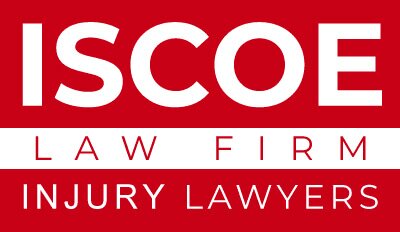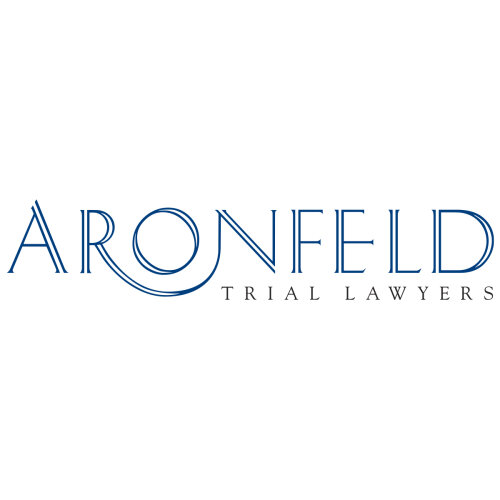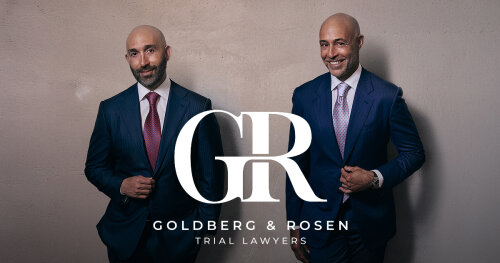Best Toxic Mold Lawyers in Miami
Share your needs with us, get contacted by law firms.
Free. Takes 2 min.
List of the best lawyers in Miami, United States
About Toxic Mold Law in Miami, United States
Toxic mold refers to certain types of mold that produce toxic substances known as mycotoxins. In Miami, United States, the presence of toxic mold can pose serious health risks and lead to property damage. Understanding the legal aspects of toxic mold is essential when dealing with this issue.
Why You May Need a Lawyer
There are several situations in which you may require legal help regarding toxic mold:
1. Landlord-Tenant Disputes: If you are a tenant dealing with a landlord who has failed to address toxic mold issues, a lawyer can help protect your rights and ensure necessary actions are taken.
2. Property Damage Claims: Toxic mold can cause significant damage to your property. A lawyer can assist you in filing a claim against the responsible party, such as a landlord, contractor, or insurance company.
3. Personal Injury: Exposure to toxic mold can lead to health problems. If you or your family members have suffered from mold-related illnesses, a lawyer can help you pursue a personal injury claim to seek compensation.
Local Laws Overview
In Miami, United States, several key aspects of local laws are relevant to toxic mold:
1. Disclosure: Property sellers and landlords are required to disclose any known mold problems to potential buyers or tenants in Miami, ensuring transparency in real estate transactions.
2. Landlord Responsibilities: Landlords have a legal obligation to maintain rental properties in a habitable condition. This includes addressing toxic mold issues promptly.
3. Tenant Rights: Tenants have the right to live in a safe and healthy environment. If landlords fail to address toxic mold issues after being notified, tenants may have grounds to seek legal recourse.
Frequently Asked Questions
Q: Is toxic mold always visible?
A: No, toxic mold can grow in hidden areas such as behind walls or under floorboards. If you suspect mold-related problems but cannot see it, professional testing may be necessary.
Q: How can toxic mold affect my health?
A: Exposure to toxic mold can cause respiratory issues, allergies, headaches, fatigue, and other health problems. Individuals with weakened immune systems or pre-existing respiratory conditions may be particularly vulnerable.
Q: How long do I have to take legal action for toxic mold issues?
A: The statute of limitations determines the timeframe for filing legal claims, which can vary depending on the specific circumstances and jurisdiction. It is best to consult with a lawyer to understand the applicable deadlines.
Q: Can I break my lease if my landlord fails to address toxic mold issues?
A: In some cases, you may have the right to terminate your lease agreement if your landlord fails to address toxic mold issues that affect your health or render the property uninhabitable. Consult with a lawyer to understand your options.
Q: What should I do if I suspect toxic mold in my home or property?
A: If you suspect toxic mold, document the issue with photographs and written records. Notify your landlord or property owner in writing, requesting immediate action. Consider seeking legal advice to protect your rights and explore potential courses of action.
Additional Resources
Here are some additional resources that can provide helpful information and guidance regarding toxic mold:
- Environmental Protection Agency (EPA): Visit the EPA website for information on mold, its health effects, and prevention strategies (www.epa.gov/mold).
- Florida Department of Health: The Florida Department of Health provides resources related to indoor mold, health effects, and guidelines for cleanup and prevention (www.floridahealth.gov/healthy-environments/mold/index.html).
- Florida Bar Association: The Florida Bar Association can help you locate lawyers specializing in mold-related issues through their lawyer referral service (www.floridabar.org/public/lrs).
Next Steps
If you require legal assistance regarding toxic mold in Miami, United States, follow these steps:
1. Document the mold issue, including photographs and written records.
2. Notify your landlord or property owner in writing, requesting immediate action.
3. Consult with a lawyer specializing in toxic mold cases to understand your rights and potential legal remedies.
4. Take appropriate measures to protect your health, such as seeking medical advice if you experience mold-related symptoms.
5. Refer to the additional resources provided for further information and support.
Lawzana helps you find the best lawyers and law firms in Miami through a curated and pre-screened list of qualified legal professionals. Our platform offers rankings and detailed profiles of attorneys and law firms, allowing you to compare based on practice areas, including Toxic Mold, experience, and client feedback.
Each profile includes a description of the firm's areas of practice, client reviews, team members and partners, year of establishment, spoken languages, office locations, contact information, social media presence, and any published articles or resources. Most firms on our platform speak English and are experienced in both local and international legal matters.
Get a quote from top-rated law firms in Miami, United States — quickly, securely, and without unnecessary hassle.
Disclaimer:
The information provided on this page is for general informational purposes only and does not constitute legal advice. While we strive to ensure the accuracy and relevance of the content, legal information may change over time, and interpretations of the law can vary. You should always consult with a qualified legal professional for advice specific to your situation.
We disclaim all liability for actions taken or not taken based on the content of this page. If you believe any information is incorrect or outdated, please contact us, and we will review and update it where appropriate.













